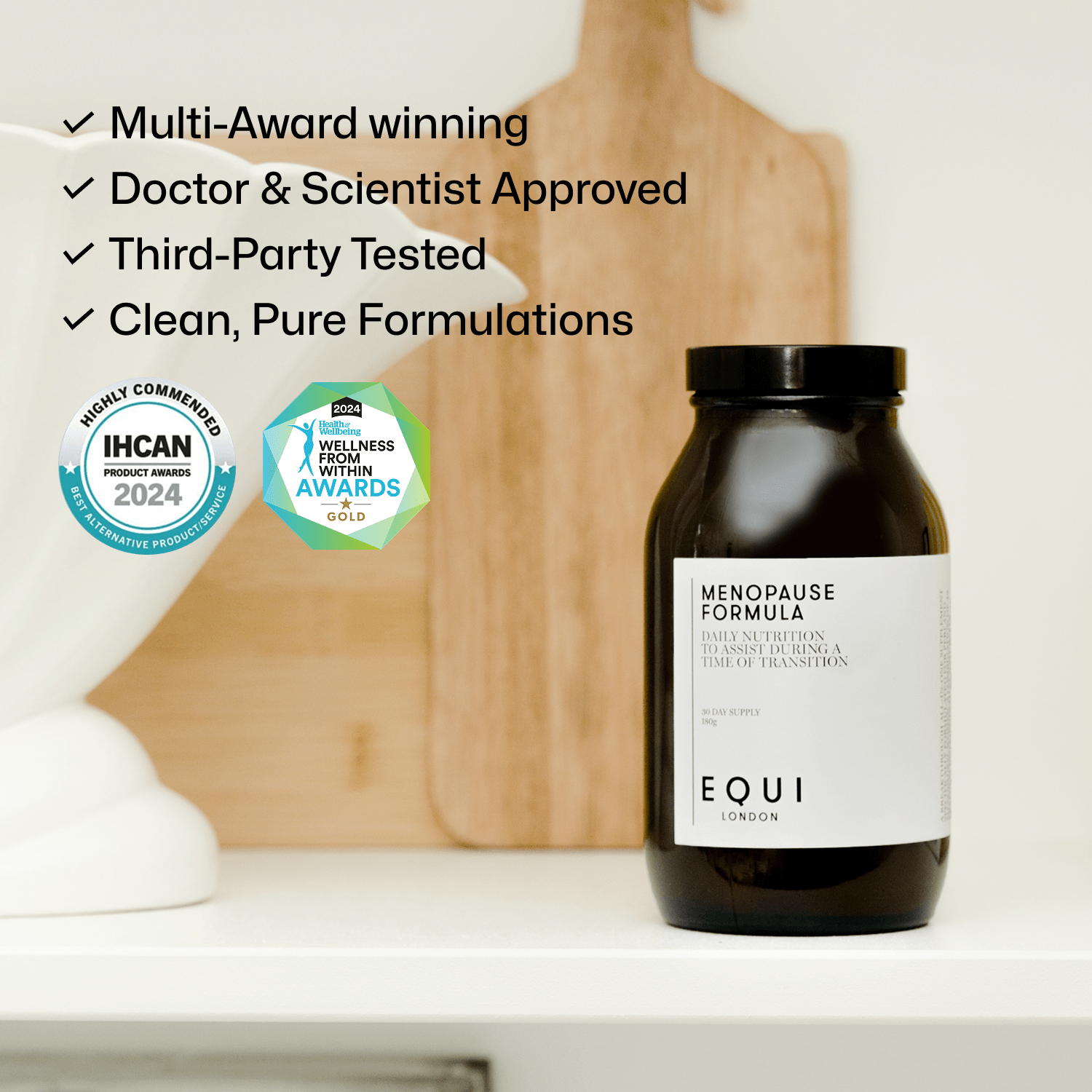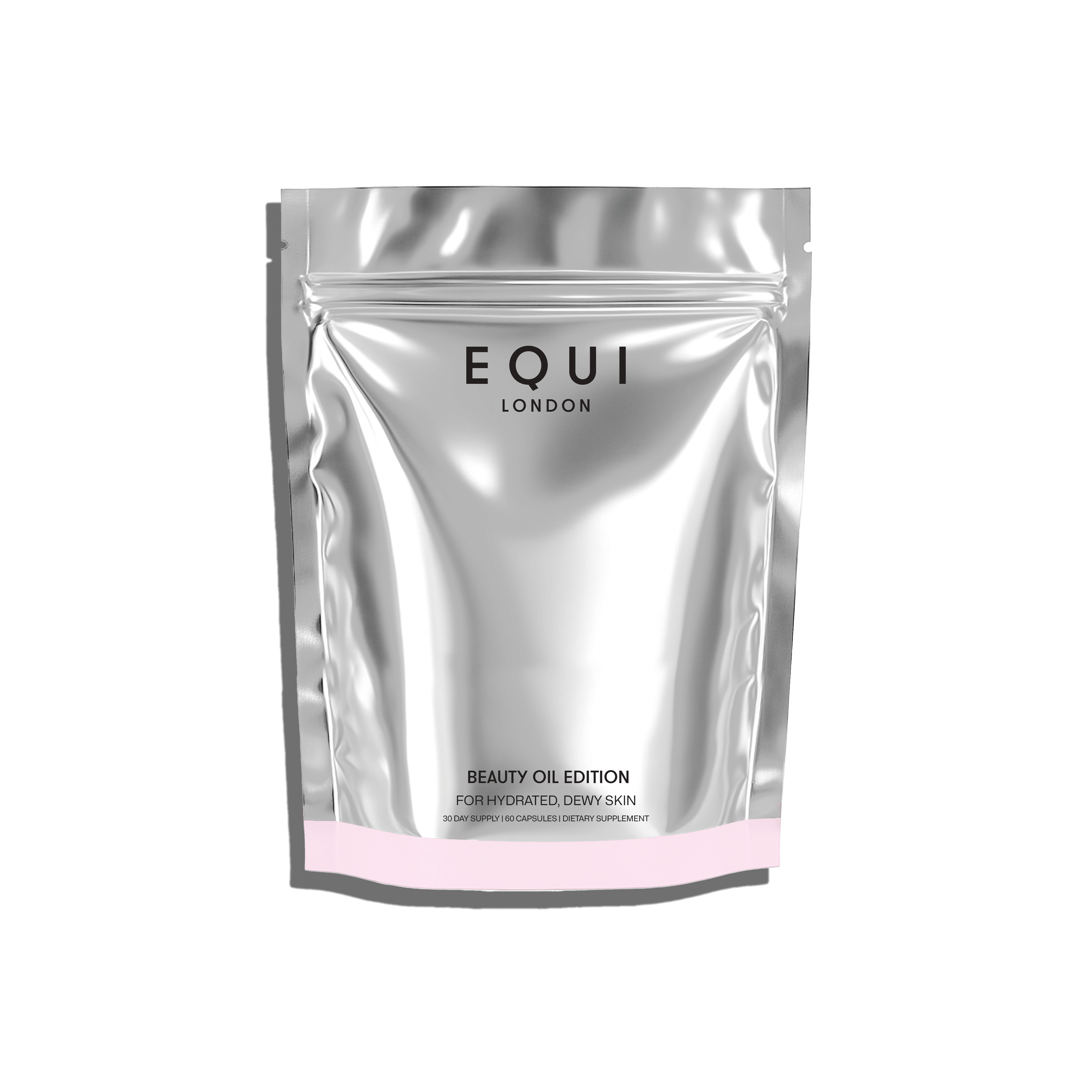You may know by now that our gut isn't just there to digest and absorb our food. Of course this is one of its primary roles, but it turns out that it does SO much more than this.
We recently explained how the gut and our skin are linked (read here) but really this is just the start, as the gut is connected to pretty much the whole of the rest of the body.. even the brain. This particular, very important connection is known as the 'gut-brain axis' and is managed by the all-important vagus nerve.
We like to think of it like a neon strip light linking the gut and the brain, but until recently the vagus nerve wasn't really something that was ever really talked about outside of a medical arena.
That's now all changed and you may have heard of it in passing with respect to your health but not fully understood what it is and why we need to keep it working well. So this month we've asked vagus nerve researcher and specialist Primarius Burger and nutritional therapist Eleanor Hoath to uncover more on how supporting this nerve can help with mood, sleep, digestion and beyond.
What is the vagus nerve?
The vagus nerve is the longest nerve in the body and originates at the brain stem, around the base of the skull. It then flows down the spine, branching off the neck and into the chest, before stretching all the way down towards the abdomen – making connections with every major organ on its journey including the heart, liver and kidneys.
The gut-brain channel of communication is not a one-direction channel - infact it works both ways.. so the gut can tell the brain things and vice versa.. this may be why for example, you can find yourself running to the loo more often in stressful situations, or conversely why a dodgy tummy can make you feel anxious.
How does the vagus nerve affect our health?
The vagus nerve regulates keeps our 'automatic' body functions - AKA the involuntary stuff that we don't have to think about - digestion, heart rate, respiratory rate, and vasomotor activity - all ticking along nicely. It also controls reflex actions like coughing, sneezing, swallowing, and vomiting AND it's responsible for the regulation of our 'fight or flight' response.. so yeah, it’s a pretty big deal.
Vagus Nerve Dysfunction – signs and symptoms:
There can be significant health consequences associated with poor 'vagal tone' or vagus nerve function. When the vagus nerve is disrupted by excess stress, disease, certain medications, inflammation, and infections, among other things, the body finds itself working double time with a harder time relaxing and attending to its primary functions such as quality sleep, reproduction, breathing, digestion, and movement of wastes through the GI tract, lungs, and skin.
What to look out for:
How might we know that we need to work on our 'vagal tone'?
- Signs of digestive issues – consider the regularity and ease of your bowel movements as well as bloating and any other digestive complaints
- Respiratory difficulty - Evidence shows that the pharynx can become dysfunctional, resulting in sleep apnea.
- Sleep cycles - Very importantly, the vagus nerve regulates the rest and digestion system, so when the body is not in homeostasis, sleep quality might be affected
- Imbalances in smooth muscle tone and function – often identified as muscle spasms or constipation, as a consequence of the muscles in the colon being unable to relax
- Lack of control over the voice or a monotonal style
- Dizziness and weakness
- Difficulty swallowing
- Changes in heart rate - sweaty palms and even some anti-social behaviour when someone might be experiencing emotional distress
How can we keep the vagus nerve healthy?
The good news is there are many things that we can do daily (& for free) that activate and work on the tone of the vagus nerve and reduce inflammation.. which incidentally has been shown to suppress vagus nerve function. Implementing these techniques can aid in the recovery from stressful periods whilst keeping regular digestion and a clear, healthy mental state.
- Vagus nerve 'vibrations'
As we know, the location of the vagus nerve branches out at the chest, so physical vibrations of the area activate and tone the vagus nerve. So, singing and humming along to your favourite songs is a scientifically proven way to increase the tone of the vagus nerve and enable our body to relax faster after experiencing stress– so join a choir, start a cooking playlist or simply sing your heart out on a Saturday night or in the shower. The same goes for laughing, so invite your friends round for a night of endless laughter.
If singing isn’t your thing – you can also invest in devices such as the Sensate which is an electronic vibration device designed to tone and nourish the vagus nerve.
- Breathing and meditation for the vagus nerve
- Vagus nerve and gut health
Good gut health is everything. Focusing on high fibre foods with an abundance of colours and whole foods helps to ensure that digestion is regular and comfortable. Similarly, probiotic rich foods and supplements aid in maintenance of gut health, with research showing specific strains of probiotics enhanced the production of GABA (a calming and relaxing neurotransmitter of the brain). Any super ingredients you can include for the gut such as turmeric, ginger (spices in general are a winner), garlic, pomegranate, cranberries, berries of all kinds, polyphenol rich foods such as red wine (moderation), dark chocolate and black grapes are also winners.
This is also why all of our Equi Formula range contain ingredients that support your gut, from probioitics and plant enzymes such as papain and bromelain (in all Formulas aside from Pregnancy), resveratrol, pomegranate extract, bilberry, collagen and reishi mushroom (Beauty Formula), flaxseed (Menopause) & turmeric extract (Original Formula).
- Supporting your vagus nerve with diet
Maintaining a healthy, anti-inflammatory diet is going to be supportive of establishing a regulated, healthy parasympathetic nervous system, whilst also reducing inflammation in the digestive tract. Gravitate the Mediterranean style of eating, with an abundance of colourful fruits and vegetables, protein and healthy fats.
Reducing sugar intake will also aid in the reduction of inflammation in the GI tract. Sugar can be incredibly inflammatory for the gut as well as slowing down the transit movement of the bowel, leading to constipation.
Lastly, it could be wise to focus on Tryptophan – this essential amino acid found in protein rich foods is the precursor to feel good neurotransmitter, serotonin. Metabolised in the gastrointestinal tract, this amino acid can support communication from the gut to the brain through the vagus nerve. Consider foods such as Turkey, spinach, bananas and nuts.
Disclaimer: As with all information on Equi London, this information is not a substitute for medical advice. No one diet or supplement regime works for everyone and you should always seek help from a GP and registered health expert before making changes to your diet, or before introducing any supplements.
References
- Atrophy of the Vagus nerve in Parkinsons disease revealed by high res Ultrasonography -0 Uwe Walter Panagiota Tsiberidou and Matthias Lohle
- Vagus nerve as a modular of the brain gut axis in psychiatric and inflammatory disorders - Sigrid Breit, Aleksandra Kupferberg and Gregor Hasler
- Obstructive Sleep Apnoea and Respiratory Complication associated with the Vagus nerve - Fuzhan Parhizgar, Kenneth Nugent and Rishi Raj
- Disorders of the cranial nerves IX and X - Audrey B Erman, Alexandra E Kejner and Eva Feldman
- (*) Ingestion of Lactobacillus strain regulates emotional behaviour and central GABA receptor expression in a mouse via the vagus nerve - Javier A Bravo, Paul Forsythe, Marianne V Chew
- Vagus Nerve as Modulator of the Brain–Gut Axis in Psychiatric and Inflammatory Disorders - Sigrid Breit, Aleksandra Kupferberg, Gerhard Rogler,













